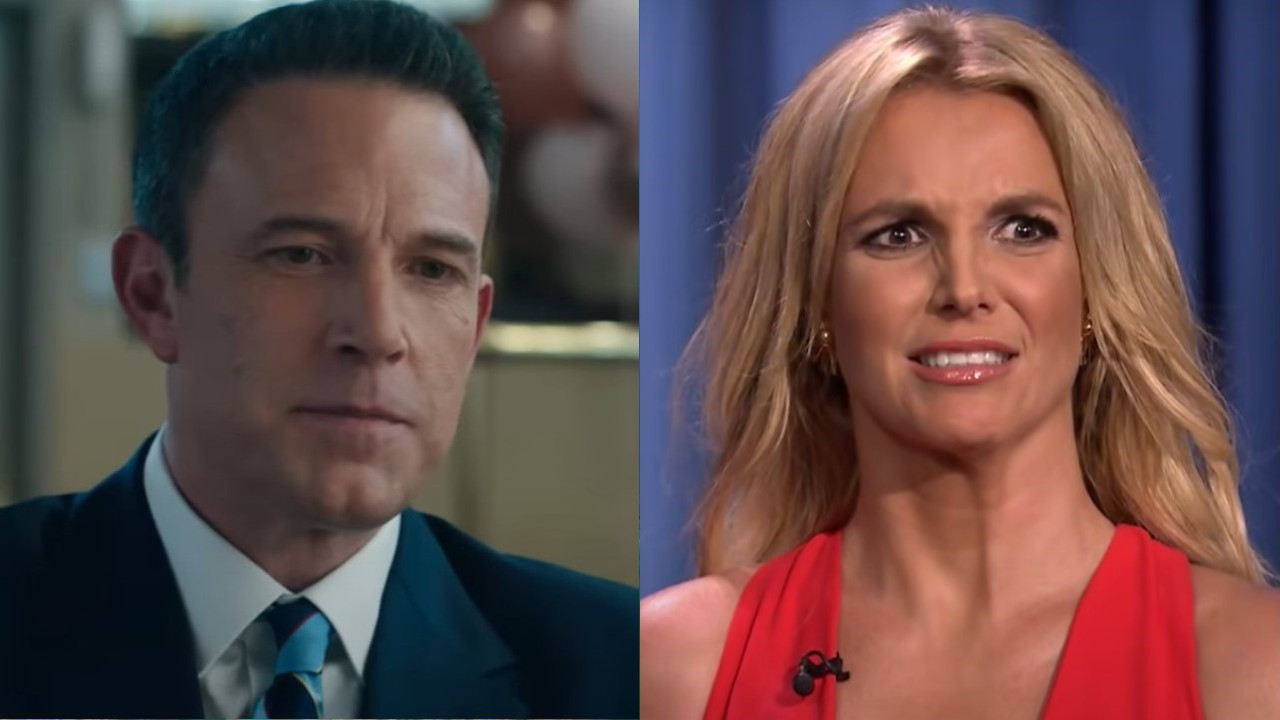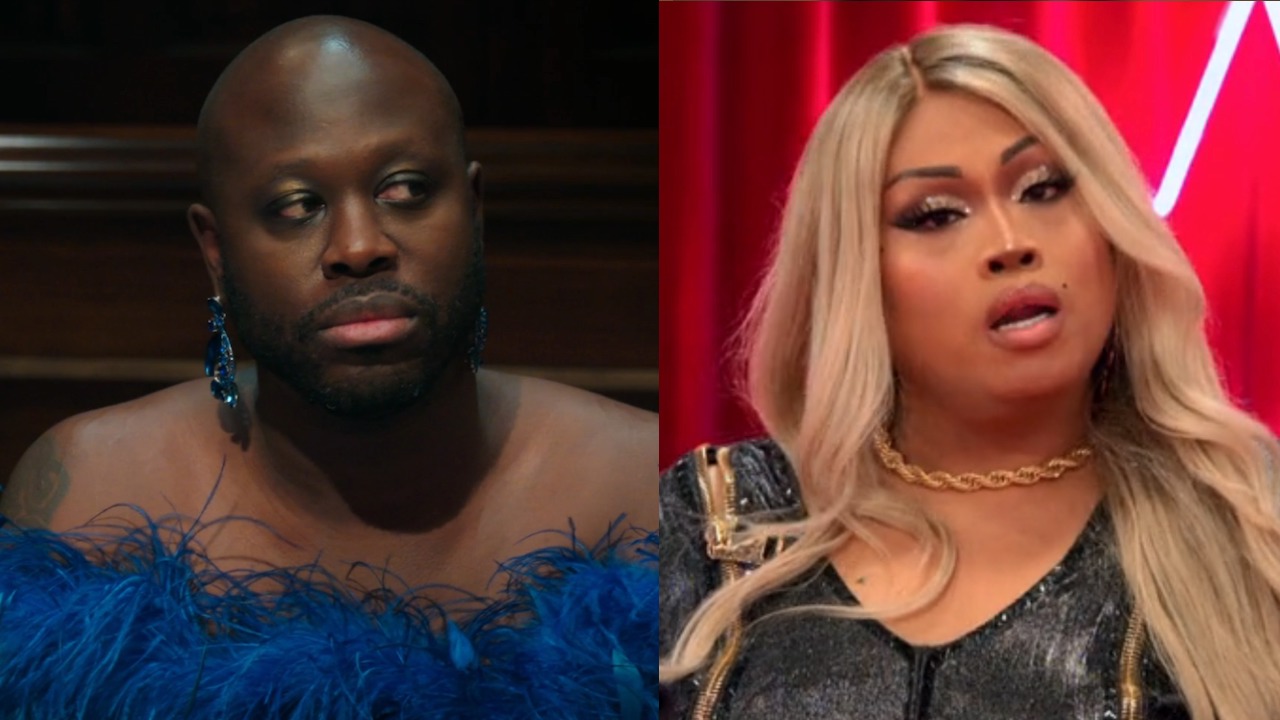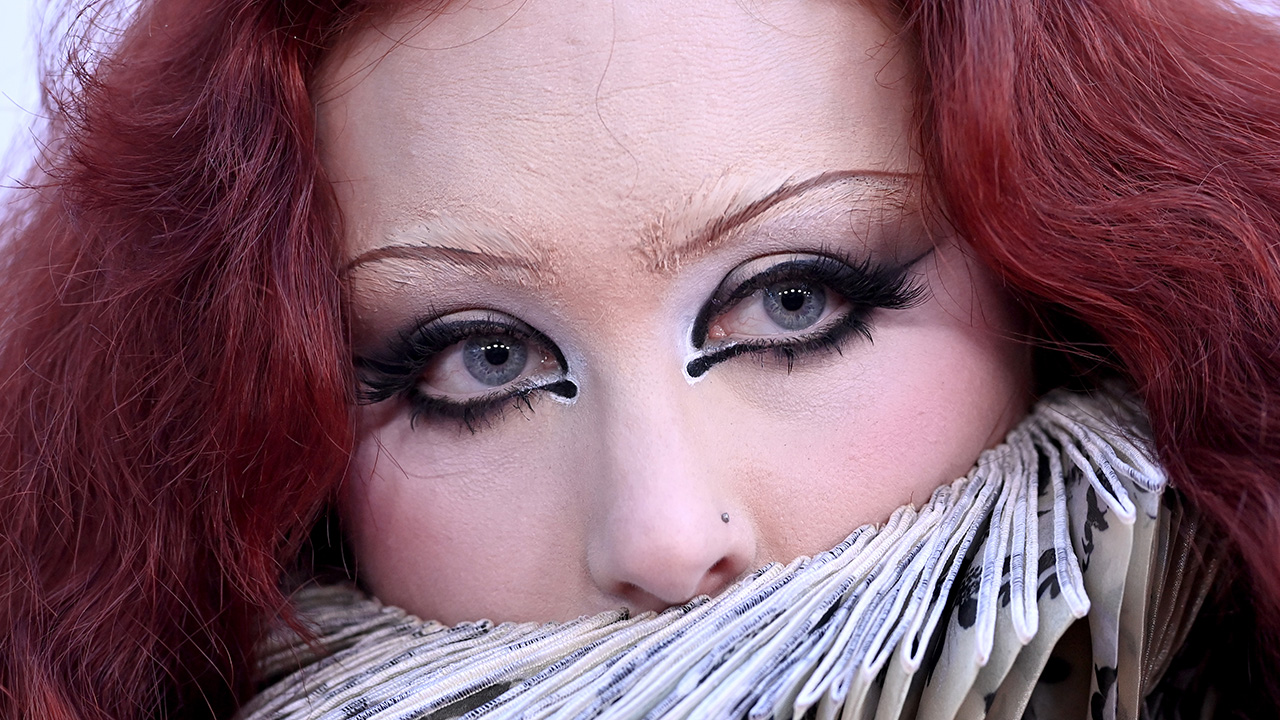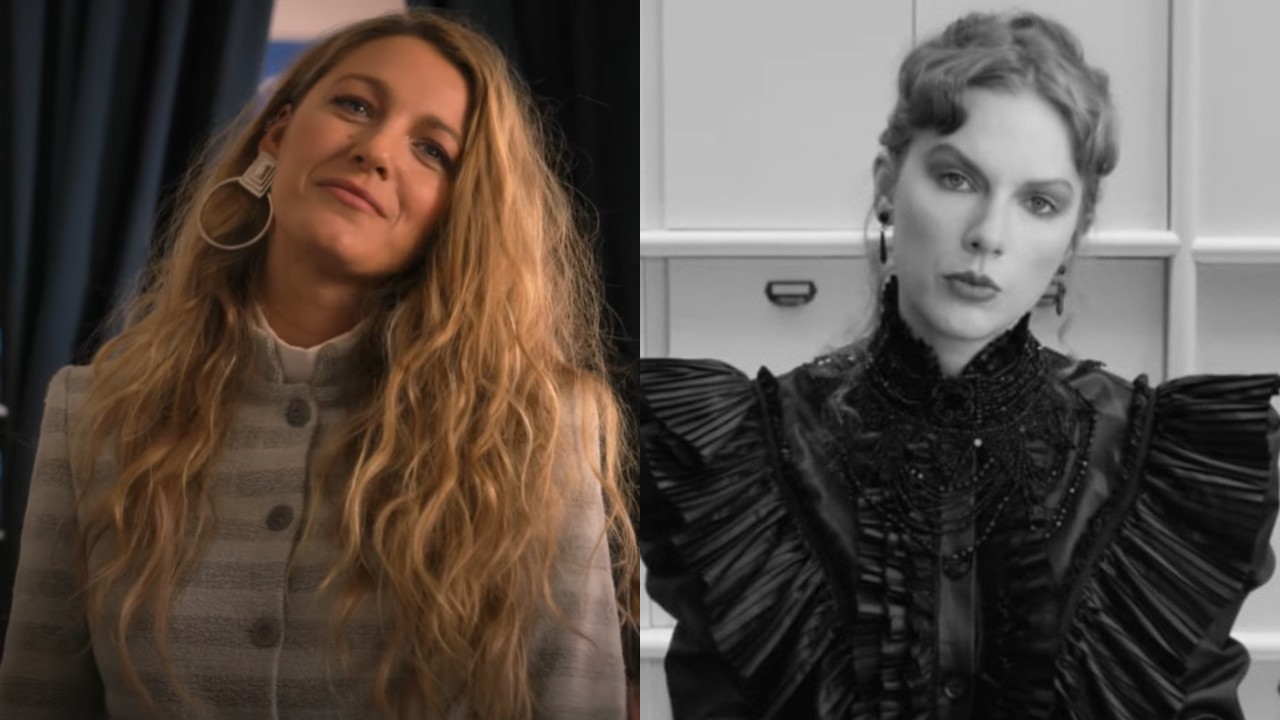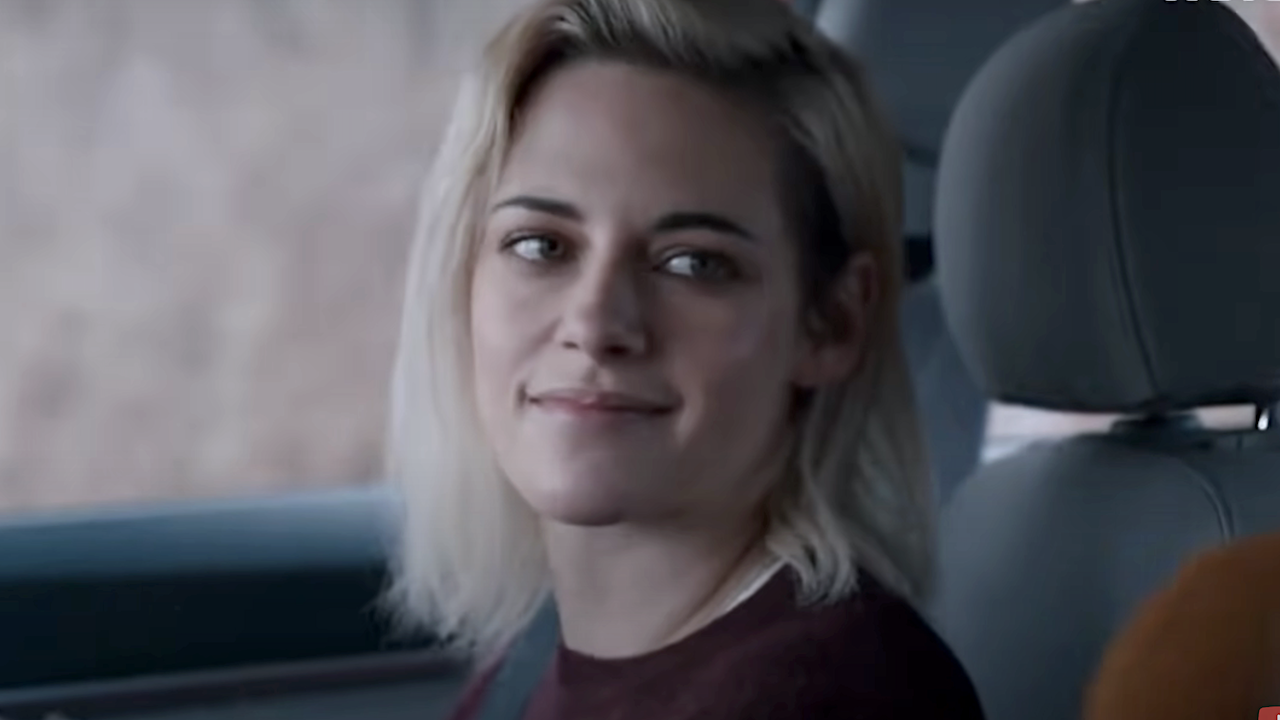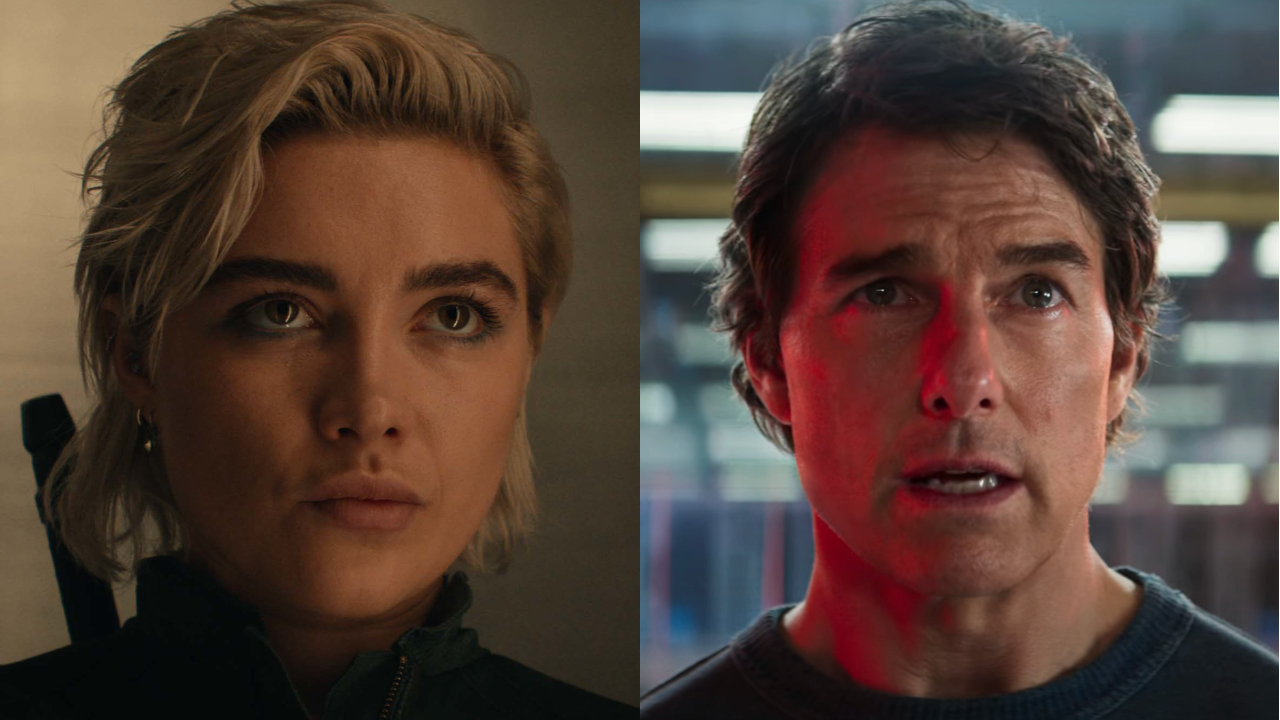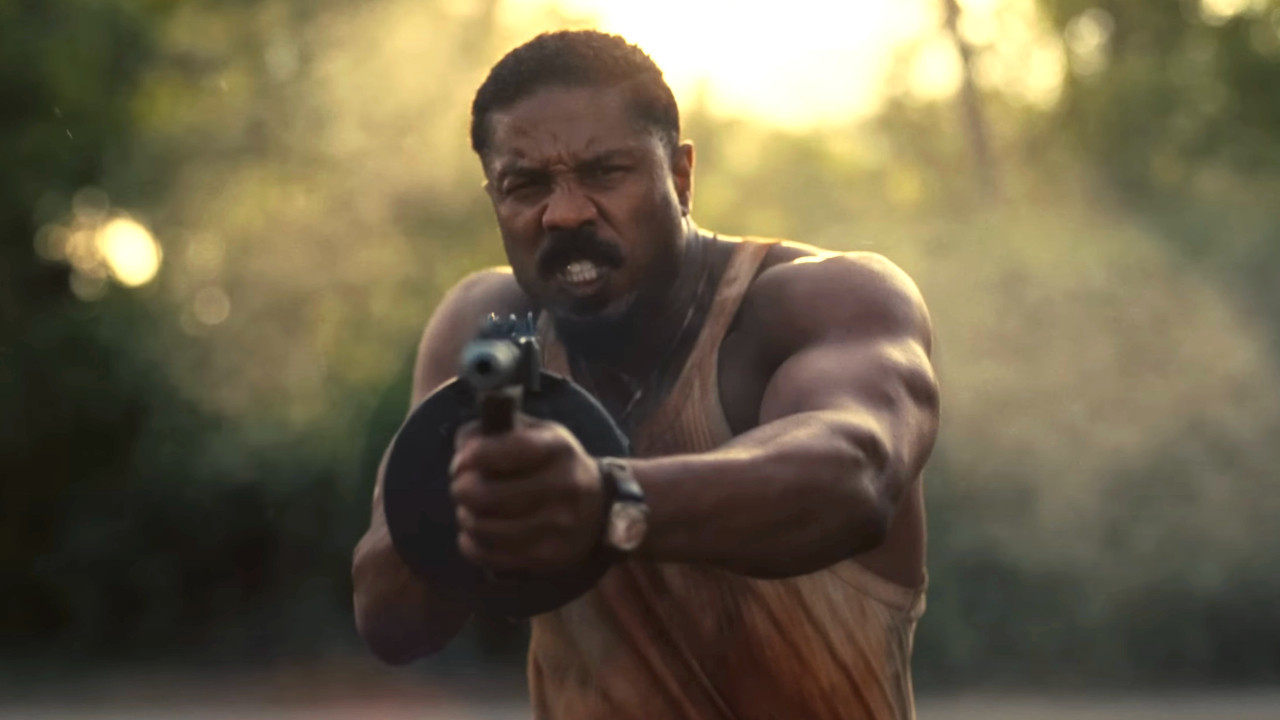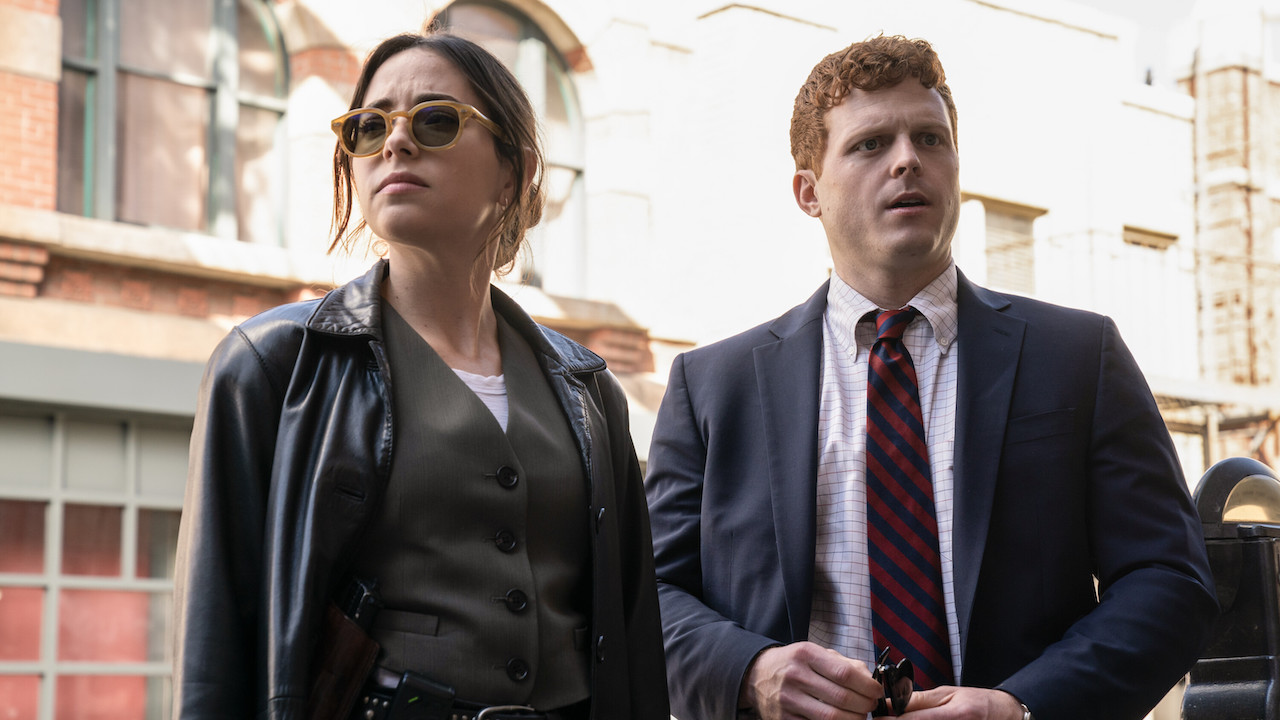Interview: The Change Up's Jason Bateman And Ryan Reynolds
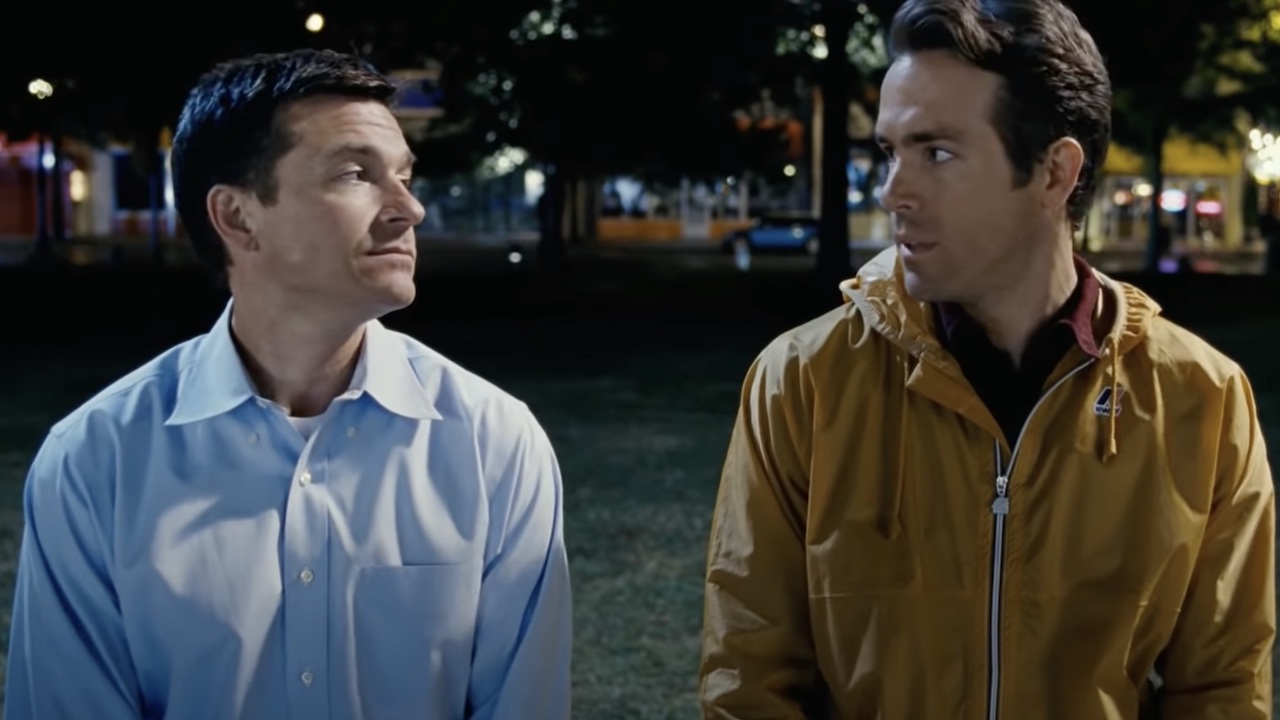
Between Freaky Friday, Like Father, Like Son, 17 Again, and all the other body switching comedies that have come out over the years, there has been some question as to whether or not we really need another one. They all really have the exact same plots, so what could The Change Up possibly offer? How about the incredible comedic talents of Jason Bateman and Ryan Reynolds and one of the dirtiest scripts you will ever hear?
In the film, Bateman plays Dave, a mild-mannered lawyer and husband of two. Reynolds, on the other hand, is a high school dropout/struggling actor who likes to spend most of his day smoking pot and doing nothing. With their friendship beginning to fade, they go out what night for some drinks and after pissing in a magic fountain wake up in each other’s bodies.
A couple weeks ago I was invited to a press conference in which the two stars talked about their roles in the David Dobkin-directed comedy. Check out the interview below in which Bateman and Reynolds discuss the parts of the film that went too far, handling the kids and the preference of working with an R-rating over PG-13.
Would you really want to try to switch for a day, just to see what it would be like?
Ryan Reynolds: I’d do terrible things to his body.
Jason Bateman: And to my wife. He’s been after my wife for years.
Well talk a little bit about getting involved in this. Did you actually kind of study each other a little bit, or was it characters, and studying each other’s characters?
CINEMABLEND NEWSLETTER
Your Daily Blend of Entertainment News
Ryan Reynolds: A little bit. I first met Jason about fifteen years ago, so we’ve known each other a long time. I think I can speak for both of us quite unilaterally when I say that neither of us are good enough at our jobs to do an impression of each other.
Jason Bateman: How dare you.
Ryan Reynolds: So no we didn’t really work on that specifically. We just really went with the essence of the other guy. We have a pretty high level of conceit right at the get-go. We didn’t want audiences picking apart our performances as a spot-on imitation of each other, that just isn’t really necessary.
Jason Bateman: Yeah. You’re not going to R-rated comedies to get a study in acting. I think you want to go in there and have a good time, laugh your ass off, maybe get offended a couple of times and get the hell out. We’re not trying to win Oscars here or teach anybody any lessons. Having said all of that, this movie is about as high quality, if I do say so myself, as you can get with an R-rated comedy. The comedy is absolutely, it pushes all boundaries and barriers and happens to sneak in quite a bit of heart and relatability if that’s possible in a concept where people switch bodies. It’s the reason that Ryan and I jumped at the change to be in the film, the quality of the script, what Lucas and Moore did with what is obviously a concept that people are more than familiar with. There’s no reason to do another body-switching movie unless you’re going to do something different. We do here. This is an R-rated body-switching movie, it hasn’t been done before. You put the director of Wedding Crashers on that, I’m already in. We were lucky to be a part of it and we couldn’t be more proud of it.
Ryan Reynolds: He said all of that on one exhalation. Do you have gills or something? That’s really incredible.
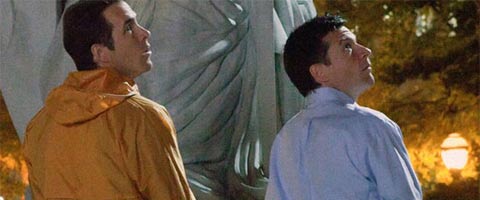
Can you tell us how your characters changed from the page to the screen?
Ryan Reynolds: You know those guys, [Jon] Lucas and [Scott] Moore, they are very capable with, was it a typewriter that they’re going on? Straight up pencils, a charcoal sketch of what they were thinking. They had a lot of it on the page there. Jason and I, when we first started banding it up, jumping into this somewhat ridiculously premised film, we didn’t really have a preference on the characters. I said I’d play either guy, I don’t care, and he sort of felt the same way. We felt like we’d maximize the comedy by doing it the way we ended up choosing to do it
Jason Bateman: that and he lost rock, paper, scissors.
Ryan Reynolds: Yeah, that’s true as well. So much can happen in a simple game like that.
Jason Bateman: Paper covers rock!
Ryan Reynolds: We mostly sat in a big room in Atlanta two and a half weeks before shooting, throwing a football around and just playing with the lines, coming up with alts. We came up with a lot of different alts, we had Lucas and Moore there as well with us, and David Dobkin. It’s just a great way to start a movie, just diving right in.
Ryan, which character would you say you’re more like in real life? Are you more the uptight Dave, or the free-spirited, crazy Mitch.
Jason Bateman: You can pick one of the women, too if you want.
Ryan Reynolds: I’m a lot like Leslie... I don’t know. I’ve got to say I’m somewhere in the middle, you know? There was a time in my life where I’d wake up in the morning in a shallow pool of my own fluid, but no, those days are over. I eat breakfast now, not ketchup. It’s different now. I think I’m a little bit more of a conservative guy, I don’t know if I’m uptight, but I’m more of that role, yeah.
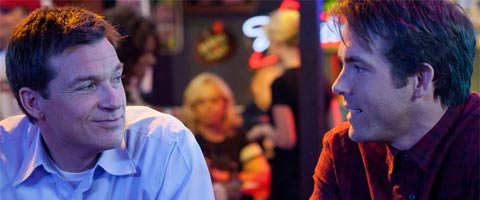
Jason, you and Leslie are the two with kids with the crew. Did you ever bring any of your fatherly qualities to the role?
Ryan Reynolds: Gave me a spanking or two.
Jason Bateman: But what he loves most is to be powdered.
Ryan Reynolds: And changed.
Jason Bateman: He loves to stay dry. My fatherly skills were questionable to start, let’s be clear. But it was, I didn’t need any lessons on how to change diapers when I was playing the Dave character. I’m upset I didn’t need to do any swaddling on set because I can swaddle like a mofo. I can wrap kids like a little burrito. But these kids were too old to be swaddled. I was comfortable with them even when I was playing the idiot, Mitch. He’s got to handle them like the guy who doesn’t know how to handle kids. I was able to do that in a safe way, I know how to find parts on kids where as long as you’ve got a firm hold on that part, you can just about drop them and they’re still safe. I don’t know, you look at the domestic part of this film and you think, “Ugh, is that going to soften the R-rating?” because when you buy tickets to an R-rated film, you want R-rated comedy. That was a concern of mine when I was reading the script. It’s really, it serves to, there’s R-rated concepts and tone in this film. One of the R-rated concepts in this film is taking a fox and putting it in the henhouse. You need the henhouse; the henhouse is this beautiful, domestic situation with this house in the suburbs with this beautiful wife and these three kids, and then you drop this pig in there.
Ryan Reynolds: Careful.
Jason Bateman: The character, angel. It was used quite well. There was a lot of cleverness in the script, in the concept.
What was the part that you enjoyed the most?
Jason Bateman: Working with this guy is pretty great. There’s not a lot of, there’s a hacky way to say it, but we didn’t do a whole lot of work. There was a lot of playing and a lot of support. He’s got incredible ideas for what different to say if you’re tired of hitting that joke out of the park. These writers write these incredible lines and eventually you’re going to get tired of it and stop laughing at it. He comes up with one that’s no better, no worse, but just beautifully different. Working with David Dobkin is fantastic because the guy’s incredibly professional and prepared. Everything moved like people had been there before and knew what they were doing. In a world of chaos, which is what a movie set is, it’s nice to be working with professionals.
Ryan Reynolds: I’ve admired this guy for a long time, both personally and professionally. Working with him was, I actually used to pride myself on the fact that I could not break in a scene, you could do or say anything. He turned it into an actual disability for me. An entire movie could be cut of just me tearing up and trying to hold it together, and then standing at a perfect right angle for the rest of the scene because I can’t catch my breath. That was nice. That was really nice to work with that for a while, pretty soon it got embarrassing, I have to say.
Jason Bateman: And then he got over me. I ran out of material in like week 2.
Ryan Reynolds: Yeah, but your wife, wow. She will keep you busy.
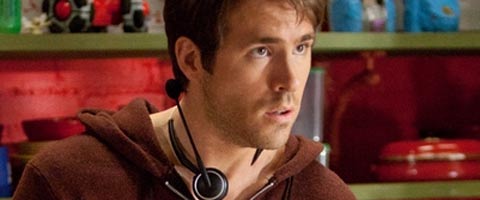
David was saying that there are some things in the film that, when they were showing the film to test audiences, went a bit too far. On set, did you have to pause and say, “Maybe that's a bit too much?”
Ryan Reynolds: Yeah. There was a few of those moments. For me there was a couple of moments in the lorno that went a little far. I don’t usually look at a schedule in advance which would be a wise tip for some up and coming actor, to know when your mom is coming to visit. That was the two days that my mom came out to Atlanta to visit. I introduced her to my porn mate and proceeded to get in there and do the best I could without throwing up on someone’s back. So that was tough. But there was a few moments in that sequence that aren’t in the film, which will perhaps be in the DVD that are just way too far. Way, way, way too far.
Can you give us a hint?
Ryan Reynolds: I don’t know if I should, actually, just because the little hint will turn into a tidal wave. But yeah, there’s some stuff that way, way crossed the line.
Jason Bateman: I think that, no, this film, no I didn’t feel like there were gloves on at all during this film. We could have kept going further and further and further, but there’s a balance you have to strike. You don’t want to get the audience numb to stuff that is shocking. That’s what makes David such a good director, is if you have it all be shocking and crazy all the time, you have just static. So he’s got a great ability, as do the writers, to just bring it down, have it touch earth every once in a while, and then take off again. This is a pretty good movie.
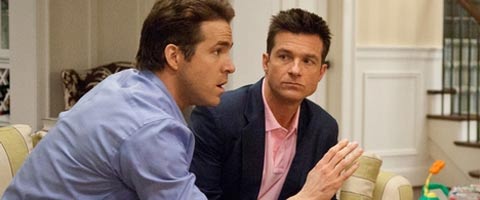
There’s sort of two ways to do the body switching movie. To do it the way you guys did it where you actually play the other part, or to do it where the actors continue to play their roles, just on the other character’s see them diferently. Was that part of the fun, where you guys got to do it this way, with you, Jason, playing Ryan’s part, Ryan, you were playing Jason? Would you have been interested to do the standard?
Ryan Reynolds: I wouldn’t have. Every actor loves a challenge like that, where you get to play two people in the same film. For me, the only way to do it was that. Plus, it allows you to inhabit the bodies that these guys are in, to really experience their world. The fact that basically in a film where two drunk idiots piss in a magic fountain, great they switch bodies, great, and then what happens after that is what’s so, to me it’s the reason to do the film. To have this mentally unhinged lunatic to be looking after your children, to me there’s something very appealing, there’s something fantastic about that setup and that payoff, and vice versa. This conservative guy who’s basically inhabiting the world of a guy who, unbeknownst to him, is working in porn. I mean, it’s absurd, but that’s what it’s all about. If you’re seeing it all through the perspective of the people I don’t think it would be as rewarding.
Jason Bateman: Ditto.
Ryan Reynolds: Thanks for weighing in.
Jason Bateman: I’ll get the next one.
What’s it like to play opposite Leslie and Olivia? They play such strong, challenging women.
Jason Bateman: It fit really well in this film because there’s a lot of offensive things that his character does, that my character does, to earn that acceptance from the audience and to have it not be repugnant or repellant. The audience has to empathize with him and with me. Therefore we are basically playing victim a lot throughout the whole film, that was I think very intelligent from the writers’ perspective. It lets you do a lot of crazy things if the audience sort of feels bad for you. So by having strong women as well, dominating them and emasculating them at certain points, it just earns you more leeway comedicly. In an R-rated movie you want to push things as far as possible and I think that, I don’t know if that was a conscious strategy on their part, but it certainly worked for the film.
Ryan Reynolds: I love Leslie, she’s a fantastic comedic actress, as we all know. What she does is I think she brings something to the table that really allows the audience to want to see Dave back with her. A lot of these movies do tend to kind of two-dimensionalize women, that kind of role can be very thankless. It’s very easy to just paint her as the nagging, offensively stereotype wife role. But she’s complex and hot and funny and charming and interesting. Yeah, her life might be just a touch stale, but that’s what happens. You still at the whole time want Dave to get back there and that’s important. Olivia, she just, that girl just brings so much to the table. The mouth on her, like a sailor. Just amazing. It takes a lot of comedic chops to play a role like that and not, again, just kind of let it turn into this person just sort of going along with it. I like that she’s getting this guy into as much trouble as his buddy was.

So you have to handle babies in the movie, what was it like, were you nervous? Jason, you’re a father, so were you nervous to kind of put them in pajamas? Was it bizarre that there was a group monitoring animals on set but not a group monitoring kids on set?
Jason Bateman: Well that’s what the parents are, that’s what they’re there for.
Ryan Reynolds: It’s not child abuse when you put your kid in Hollywood, no.
Jason Bateman: You’re getting paid for it. For that particular scene that you’re referring to where I’m carrying them basically by the backs of their necks down a flight of stairs, they had built a special harness for each one of those kids, so there’s actually a shopping bag handle around each one of their chests and backs that I was holding on to, that their onesy was over. So what could happen bad? I could take a header going down the stairs, but come on. I know how to run down a flight of stairs. The parents were briefed and asked, not necessarily in that order, about all the things that might be kind of risqué, both with language or with physical efforts, and they were completely onboard.
Ryan Reynolds: Surprisingly indifferent [laughs].
Jason Bateman: We wrote a lot of the requests for what we wanted to do with the kids on the backs of dollar bills. No, it was very easy. All safety precautions were taken. In fact, in the kitchen scene when they’re on the counter, and you think, “Oh my God, he’s walking away from the kids on the counter, they could just crawl right off.” The studio, the movie, paid a lot of money for, there was a group of men that were dressed completely in green that were there on the set that you can’t see because we painted them out, because they were in green suits, just there to catch the kids in case they fell off the counter. So there was a lot of money spent for safety.
Ryan Reynolds: But that one caused lasting psychiatric damage to those children. A man in a green unitard. Horrific.
So for the scene in the kitchen when you poured milk over them, were you able to actually do that?
Jason Bateman: Those were actually tinfoil babies. Those were babies made out of black tinfoil that I guess, black tinfoil is somehow easier in the digital world to paint out than green or blue, in this instance. Because it would pop off of the white milk I guess. So that’s what I was pouring, so that’s all movie magic that they put the kids underneath that. That was fun, that was a pretty cool idea.
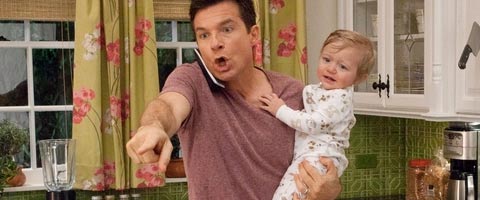
You guys both grew up as children actors, what is it like to work with kid actors now as grown-ups?
Ryan Reynolds: I just say it’s a win if we don’t have a record, personally. I haven’t spent a lot of time in jail or anything like that, I think I feel like we did all right.
Jason Bateman: I did well getting mine expunged.
Ryan Reynolds: Yeah, you did. That’s expensive.
Jason Bateman: The girl Sydney, she played the oldest kid, she’s got her head on square, she doesn’t need any advice from us and she’s got great parents. It would be a whole different interview, but it’s a complicated thing to practice being somebody else before you really know who you are, but she seems to be navigating that okay.
You guys both have experience with R-rated and PG-13 comedy, I’m curious, do you have a preference?
Ryan Reynolds: For me it’s always, I mean, every PG-13 comedy I’ve ever done, you always have that inevitable moment halfway through shooting where you call the studio head and say, “Are you sure we can’t go R with this because the shots have been terrible.” But yeah, I understand why PG-13 exists, you’re obviously appealing to four quadrants as opposed to two to three. But the freedom is incomparable. The fact that you can get away, look, the only reason you do a body-swapping comedy, the body-swapping comedy has been done before obviously, but the only reason you do it is if you can show, if we were to live in an absurd world where two drunk idiots piss in a magic wishing well and they switch bodies, if we lived in that world, you get to experience what it would be like. And what it would be like is horrible. Horrible, horrible things would happen, terrible things would be said and done. To sort of bring that up on the screen in a PG-13 way, there’s just absolutely no point. When it actually is meaningful in a movie like this, then it’s a hundred percent warranted and I prefer it immensely. But there’s some times when you’re in a PG-13 movie and you’re like, this doesn’t need to be rated-R. And it’s nice. It’s very easy to sort of fall back on the idea that you can swear your way out of a scene or something like that. It’s nice, you can really let it all hang out on a movie like this and not worry too much about pushing it too far, and if we do go too far, that’s the director’s problem and he can figure that out in post.

Eric Eisenberg is the Assistant Managing Editor at CinemaBlend. After graduating Boston University and earning a bachelor’s degree in journalism, he took a part-time job as a staff writer for CinemaBlend, and after six months was offered the opportunity to move to Los Angeles and take on a newly created West Coast Editor position. Over a decade later, he's continuing to advance his interests and expertise. In addition to conducting filmmaker interviews and contributing to the news and feature content of the site, Eric also oversees the Movie Reviews section, writes the the weekend box office report (published Sundays), and is the site's resident Stephen King expert. He has two King-related columns.
NCIS: Origins' Showrunner Revealed 'The Real Highlight' Of Learning Season 2 Was Happening, And I Discovered They Pulled Off An Amazing Achievement In The Process
I Talked To The Wedding Banquet Director About My Favorite Scene, And Turns Out Youn Yuh-Jung Actually Had A Key Note That Made It Better

